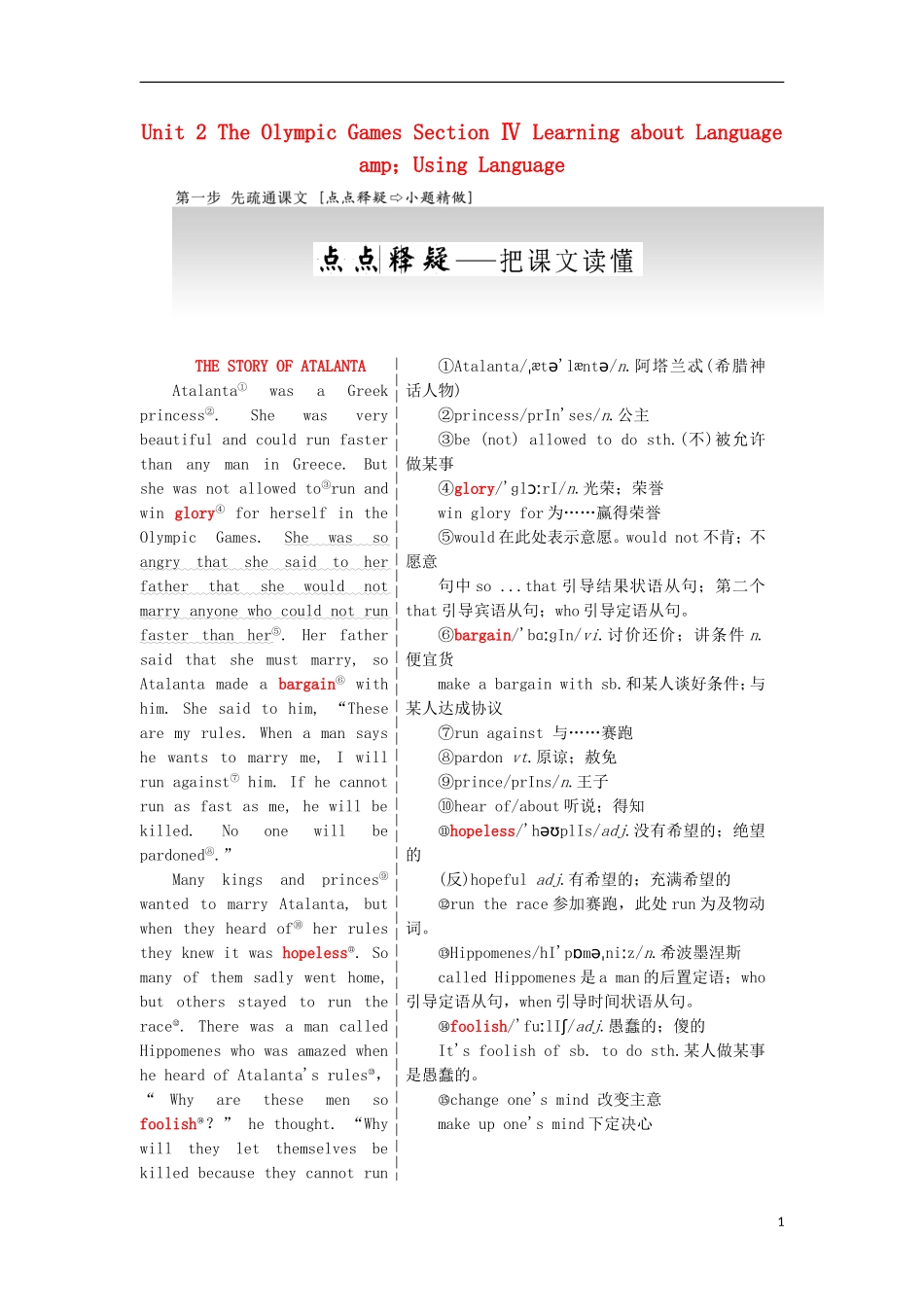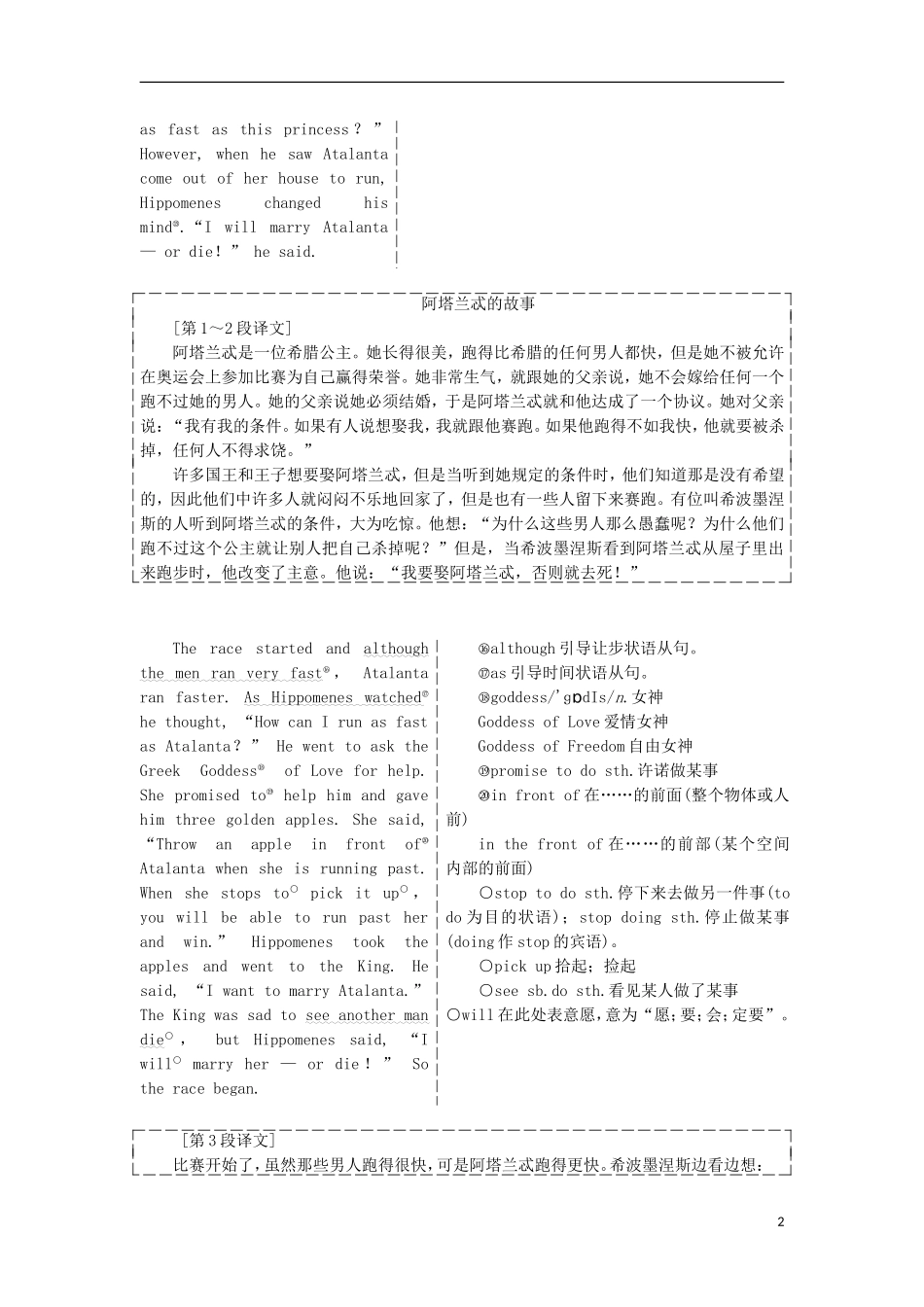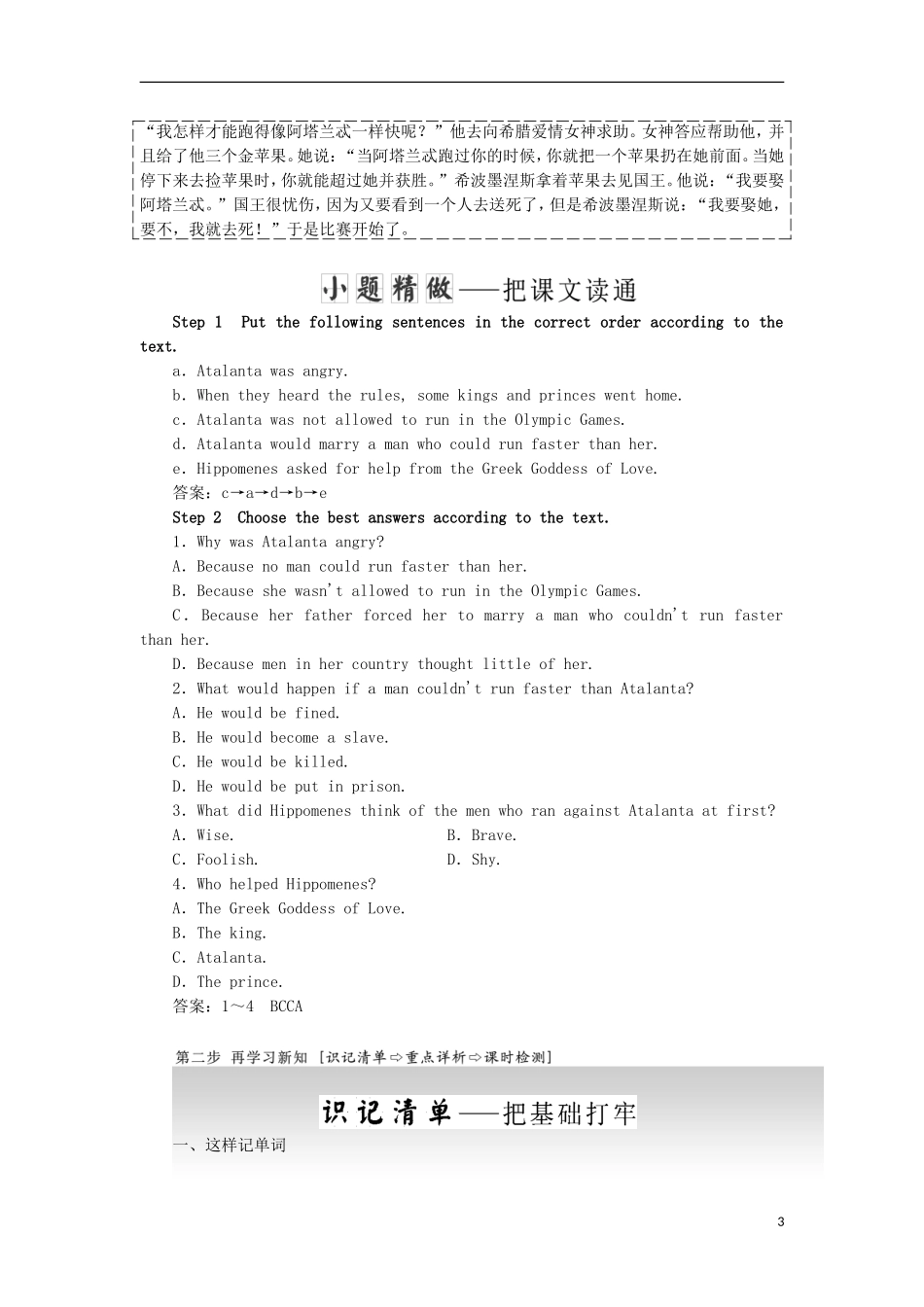Unit 2 The Olympic Games Section Ⅳ Learning about Language amp;Using LanguageTHE STORY OF ATALANTAAtalanta① was a Greek princess②. She was very beautiful and could run faster than any man in Greece. But she was not allowed to③run and win glory④ for herself in the Olympic Games. She was so angry that she said to her father that she would not marry anyone who could not run faster than her⑤. Her father said that she must marry, so Atalanta made a bargain⑥ with him. She said to him, “These are my rules. When a man says he wants to marry me, I will run against⑦ him. If he cannot run as fast as me, he will be killed. No one will be pardoned⑧.”Many kings and princes⑨ wanted to marry Atalanta, but when they heard of⑩ her rules they knew it was hopeless⑪. So many of them sadly went home, but others stayed to run the race⑫. There was a man called Hippomenes who was amazed when he heard of Atalanta's rules⑬, “Why are these men so foolish⑭?” he thought. “Why will they let themselves be killed because they cannot run ①Atalanta/ æt 'lænt /ˌəə n.阿塔兰忒(希腊神话人物)②princess/prIn'ses/n.公主③be (not) allowed to do sth.(不)被允许做某事④glory/'ɡlrI/ɔːn.光荣;荣誉win glory for 为……赢得荣誉⑤would 在此处表示意愿。would not 不肯;不愿意句中 so ...that 引导结果状语从句;第二个that 引导宾语从句;who 引导定语从句。⑥bargain/'bɑ ɡIn/ːvi.讨价还价;讲条件 n.便宜货make a bargain with sb.和某人谈好条件;与某人达成协议⑦run against 与……赛跑⑧pardon vt.原谅;赦免⑨prince/prIns/n.王子⑩hear of/about 听说;得知⑪hopeless/'hplIs/əʊadj.没有希望的;绝望的(反)hopeful adj.有希望的;充满希望的⑫run the race 参加赛跑,此处 run 为及物动词。⑬Hippomenes/hI'p mni z/ɒ əˌːn.希波墨涅斯called Hippomenes 是 a man 的后置定语;who引...


